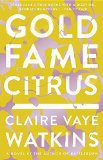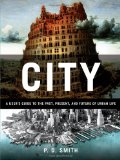Summary | Excerpt | Reviews | Beyond the book | Read-Alikes | Genres & Themes | Author Bio

According to the
CIA Factbook, in 2007, for every 8 people who
died 20 were born. Depending on who's estimating
that means that the world's population is growing at
the rate of about 1 million people every 4 days.
Let's stop for a moment to contemplate this
mind-boggling figure. Each week, the global
population is increasing by more people than live in
the entire of Philadelphia. Each month, the global
population increases by almost that of New York
City.
Somewhere between when my father was born in the
1920s and today, the world's population has
increased more than three-fold from less than 2
billion to 6.7 billion. Sheer numbers combined with
"advances" in technology have changed humanity from
an intelligent mammal capable of shaping its
immediate environment but still subject to the
forces of nature, to a bona fide force of nature
that is changing the face of the planet.
Free of rabid rantings and written in an immensely
accessible style, Weisman has produced a
well-balanced and fascinating book crafted to
inform, not to panic. There are a myriad of books
that examine one or another aspect of man's impact
on the earth (rain forest depletion, global warming,
water shortages et al) but few offer such a
wide-ranging and entertaining overview as The
World Without Us which, by imagining a world
freed from the pest of humanity, offers a unique
perspective on the environmental havoc we are
causing.
Weisman travels from
Bialowieza Puszcza, Europe's last remnant of
primeval forest, to the
North Pacific Gyre, the great garbage dump in
the Pacific Ocean, interviewing everyone from
scientists to art conservators in his effort to
imagine how long it would take the Earth to repair
itself in our absence and what it would look like.
He fills us with a sense of awe for our planet and
even for us, the extraordinary species that has
transformed the Earth to our own desires, but in so
doing has failed to take into account that our short
term wants are not compatible to the long term needs
of the Earth's species, which include us.
Take plastics for example. Ever since 1839, when
Charles Goodyear produced the world's first
artificial polymer, we've been filling our world
with plastic products that don't degrade; but since
World War II the amount of oil based plastics
produced has increased exponentially, with only a
tiny fraction of it recycled. Much of the dumped
plastic ends up in the ocean where it is ingested by
all marine animals but particularly the filter
feeders at the very bottom of the food chain (on
which we all rely) who die of constipation. Studies
have shown that in the vast marine garbage dump
known as the North Pacific Gyre, plastic particles
outweigh plankton by a factor of 6:1 (see sidebar).
In the final chapters, Weisman changes tone
dramatically from factoid-driven entertainment to
offer a solution that will seem draconian to many
but that a growing number of people believe is
humanity's only chance of coexisting with nature on
a healthy earth that has enough natural resources
for all. Weisman proposes that if mankind was to cut
its birthrate dramatically by limiting every female
to one child we could return the human population to
about 1.6 billion by 2100 - back to where it was in
the 19th century.
Weisman does not get into the logistics of how such
a cut in the birthrate could be achieved in practice
which, as we've seen with China's
one child policy (in place now for more than 25
years), is easier said than done and can be less
than humane in practice; added to which countries
would have to rethink their economic models to
recognize a shrinking economy as acceptable, even
desirable. But surely something needs to be done?
Perhaps there is a middle-ground where a change in
thinking with regard to individuals' right to
reproduce themselves multiple times becomes somewhat
less socially acceptable than it is today. Without
some drastic change, by the time our 12 year old
daughter is old enough to draw her pension in 2050,
the world's population is predicted to reach 9
billion people - over four times the number on the
planet when her grandfather was born just 130 years
before!
![]() This review was originally published in The BookBrowse Review in January 2008, and has been updated for the
August 2008 edition.
Click here to go to this issue.
This review was originally published in The BookBrowse Review in January 2008, and has been updated for the
August 2008 edition.
Click here to go to this issue.

If you liked The World Without Us, try these:

by Claire Vaye Watkins
Published 2016
The much-anticipated first novel from a Story Prize-winning "5 Under 35" fiction writer; Named a Hot Fall Read by Vogue, Mashable, Vanity Fair, Pop Sugar, Kirkus, Hello Giggles, and Los Angeles Magazine.

by P.D. Smith
Published 2012
With erudite prose and carefully chosen illustrations, this unique work of metatourism explores what cities are and how they work. It covers history, customs and language, districts, transport, money, work, shops and markets, and tourist sites, creating a fantastically detailed portrait of the city through history and into the future.
Your guide toexceptional books
BookBrowse seeks out and recommends the best in contemporary fiction and nonfiction—books that not only engage and entertain but also deepen our understanding of ourselves and the world around us.